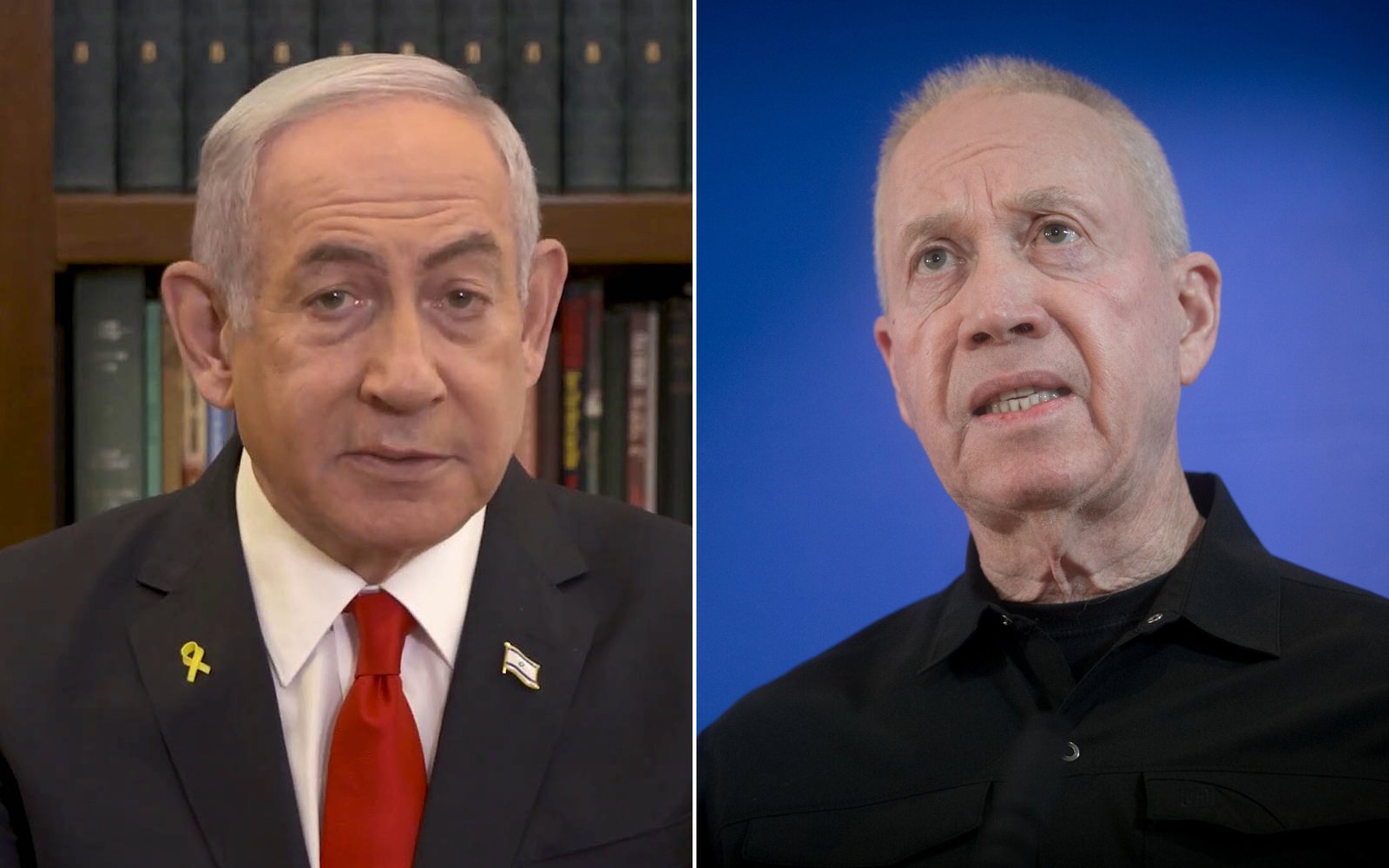Paris says that while it respects the international justice system, Israel’s leaders cannot be held accountable by The Hague as the country is not an ICC member
France said Wednesday that provisions for immunity from prosecution at the International Criminal Court apply to Prime Minister Benjamin Netanyahu and, as such, France would not arrest him and other Israeli leaders charged by the court.
In a statement, the French foreign ministry reaffirmed its commitment to international justice after the ICC issued an arrest warrant for Netanyahu and former defense minister Yoav Gallant, but also said that the Israeli leaders were covered by immunity rules that apply to states which are not a party to the ICC. Israeli is not an ICC member.
“A state cannot be held to act in a way that is incompatible with its obligations in terms of international law with regards to immunities granted to states which are not party to the ICC,” the French statement said.
“Such immunities apply to Prime Minister Netanyahu and other ministers in question, and must be taken into consideration should the ICC ask us to arrest them and hand them over,” it said.
Earlier Wednesday, Foreign Minister Jean-Noel Barrot had already said that France considered that some leaders could enjoy immunity from ICC prosecution.
Asked if France would arrest Netanyahu if he stepped on French territory, Jean-Noel Barrot did not give a direct answer in an interview with Franceinfo radio.
He said France “is very committed to international justice and will apply international law based on its obligations to cooperate with the ICC.”
But he added that the court’s statute “deals with questions of immunity for certain leaders.”
“It is ultimately up to the judicial authorities to decide,” he said.
Last week, the ICC issued arrest warrants for Netanyahu and Gallant — as well as Hamas military chief Mohammed Deif, who Israel says was killed by an IDF strike in Gaza in July — for alleged war crimes and crimes against humanity in the Gaza conflict.
The Israeli government issued harsh condemnations of the ICC, accusing it of antisemitism, in the wake of its decision last week to issue the warrants.
While the United States, which is not party to the ICC, heavily criticized the arrest warrants and said it would not arrest Netanyahu and Gallant if they traveled there, other nations have said they would honor the warrants.
The EU’s foreign policy chief Josep Borrell has said the arrest warrants are “binding” and should be implemented.
However, France has so far taken a more cautious stance on the warrants, with officials repeating that Paris is committed to international justice.
Barrot’s comments marked the first time a top French official has evoked a possible immunity.
Unconfirmed media reports have said that Netanyahu angrily raised the issue in telephone talks with French President Emmanuel Macron and urged Paris not to enforce the decision.
France has been instrumental in efforts to end fighting in the Middle East and, with the United States, helped broker a ceasefire between Israel and Hezbollah that came into force Wednesday.
Article 27 of the Rome Statute states that immunity “shall not bar the Court from exercising its jurisdiction over such a person.”
But Article 98 says a state cannot “act inconsistently with its obligations under international law with respect to the… diplomatic immunity of a person.”
France’s Wednesday stance echoed a similar sentiment from Italy, which said on Tuesday that it would honor its obligations to the ICC but that more clarity was needed in Netanyahu’s case.
“We always apply the obligations but we have to understand what the obligations are,” Italian Foreign Minister Antonio Tajani told a news conference on Tuesday, saying it was not clear whether high state officials enjoyed immunity from prosecution.
He added that “Netanyahu would never go to a country where he can be arrested,” and that “the arrest of Netanyahu is unfeasible, at least as long as he is prime minister.”
Amid the confusion, a Group of Seven statement on Tuesday avoided explicitly mentioning the ICC or the arrest warrants after a two-day meeting of the member nations’ foreign ministers.
The G7 statement, to which both France and Italy are party, merely underscored Israel’s responsibility to “fully comply with its obligations under international law in all circumstances, including international humanitarian law.”
The war in Gaza broke out on October 7, 2023, with Hamas’s unprecedented attack on southern Israel, in which terrorists rampaged through civilian communities and IDF bases, killing some 1,200 people, mostly civilians, and taking 251 hostages.
In response, Israel launched a ground offensive in the Gaza Strip with the proclaimed objectives of dismantling Hamas and getting the hostages back.
The Hamas-run Gaza health ministry says more than 44,000 people in the Strip have been killed or are presumed dead in the fighting so far, though the toll cannot be verified and does not differentiate between civilians and fighters. Israel says it has killed some 18,000 combatants in battle and another 1,000 terrorists inside Israel on October 7.
Israel has said it seeks to minimize civilian fatalities and stresses that Hamas uses Gaza’s civilians as human shields, fighting from civilian areas including homes, hospitals, schools, and mosques.
Israel’s toll in the ground offensive against Hamas in Gaza and in military operations along the border with the Strip stands at 380. The toll includes a police officer killed in a hostage rescue mission and a Defense Ministry civilian contractor.
Courtesy, Times of Israel (TOI).
Follow us on all social media platforms @dailyquery for more stories around the globe



























